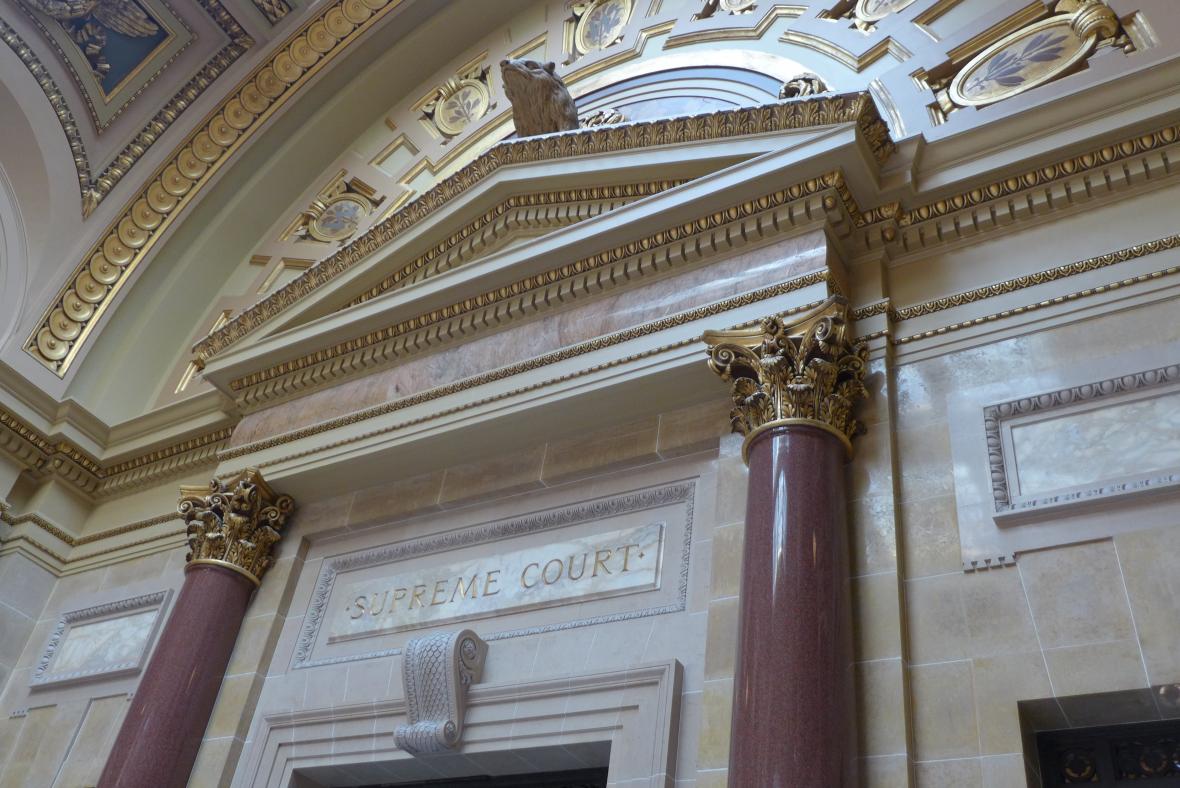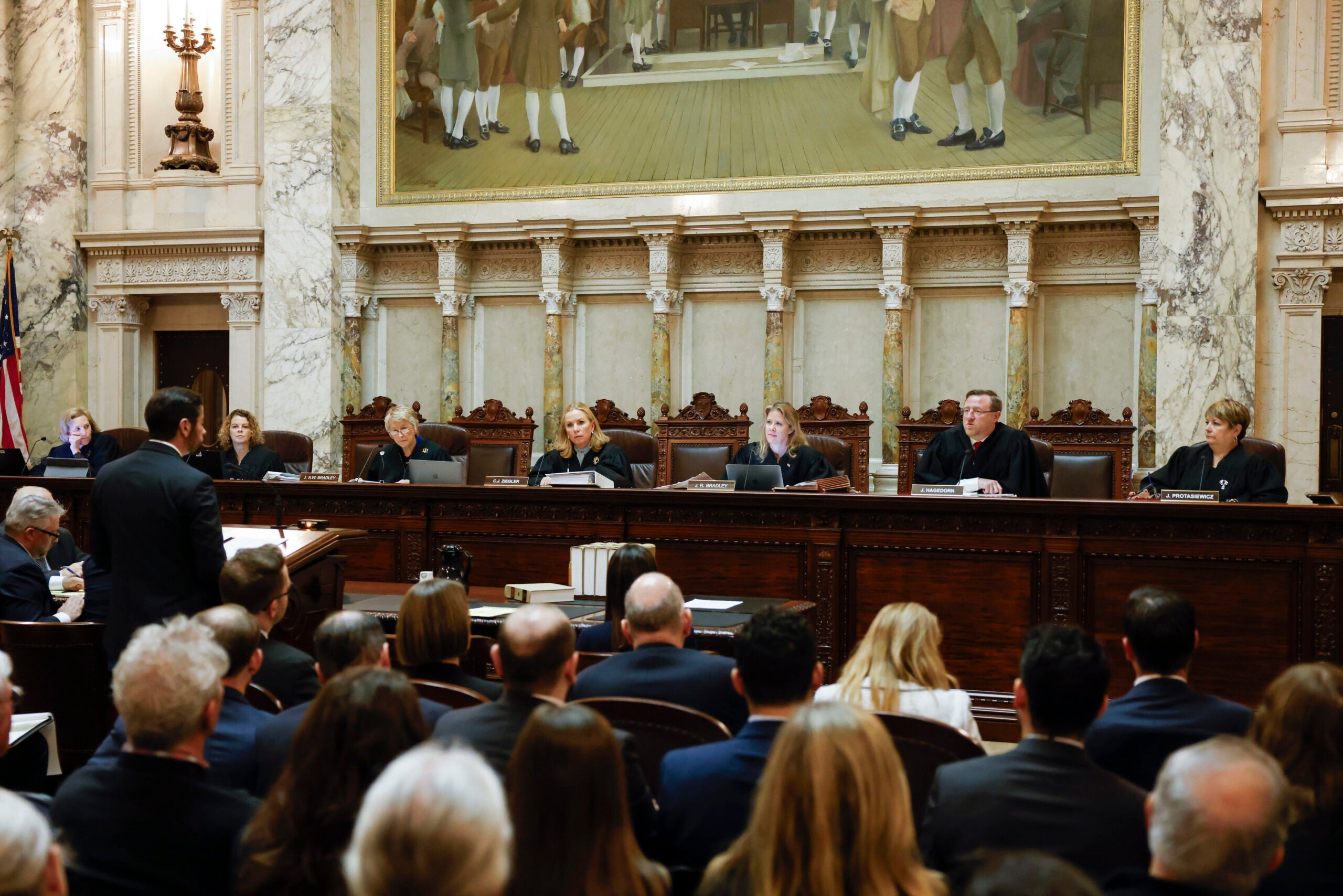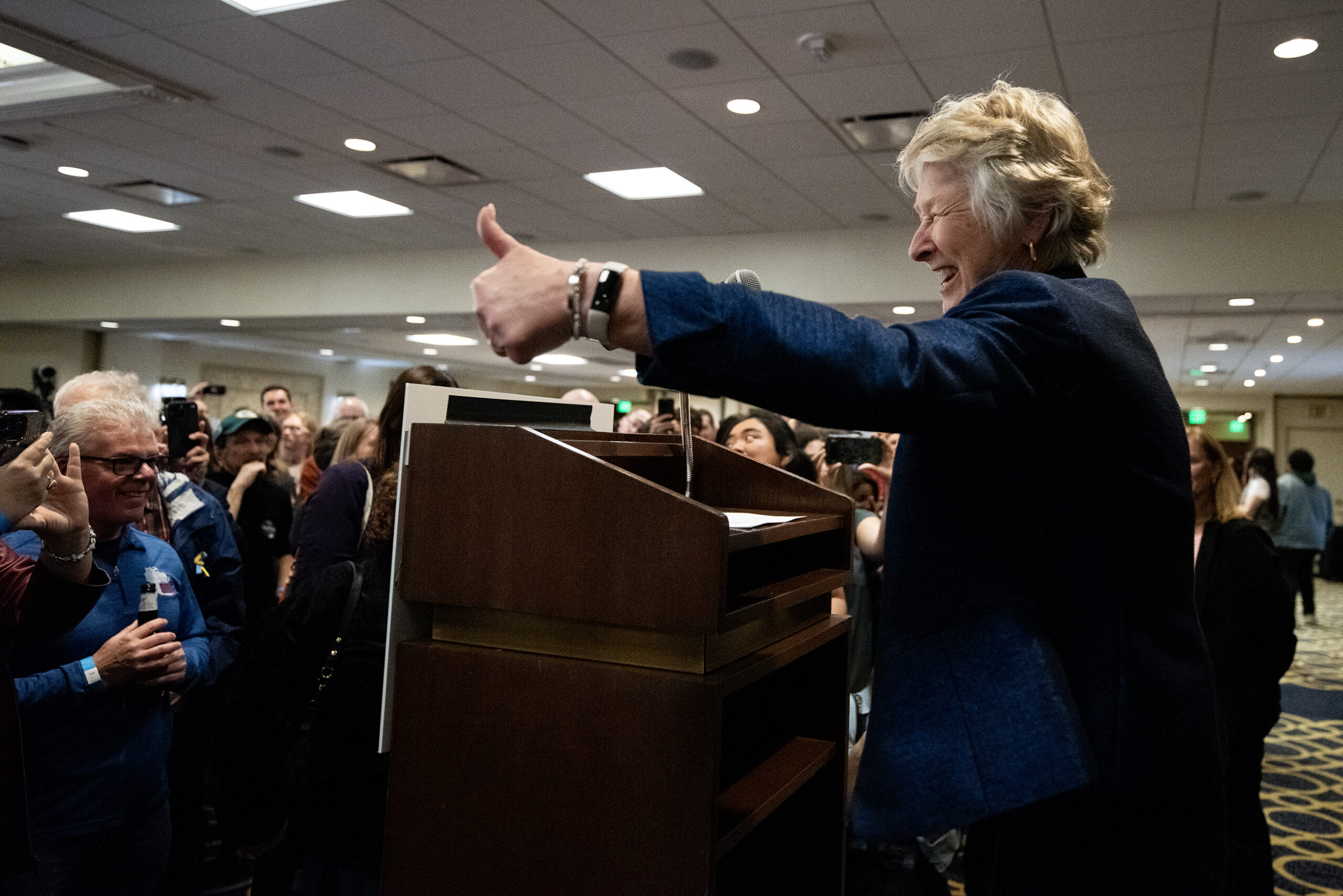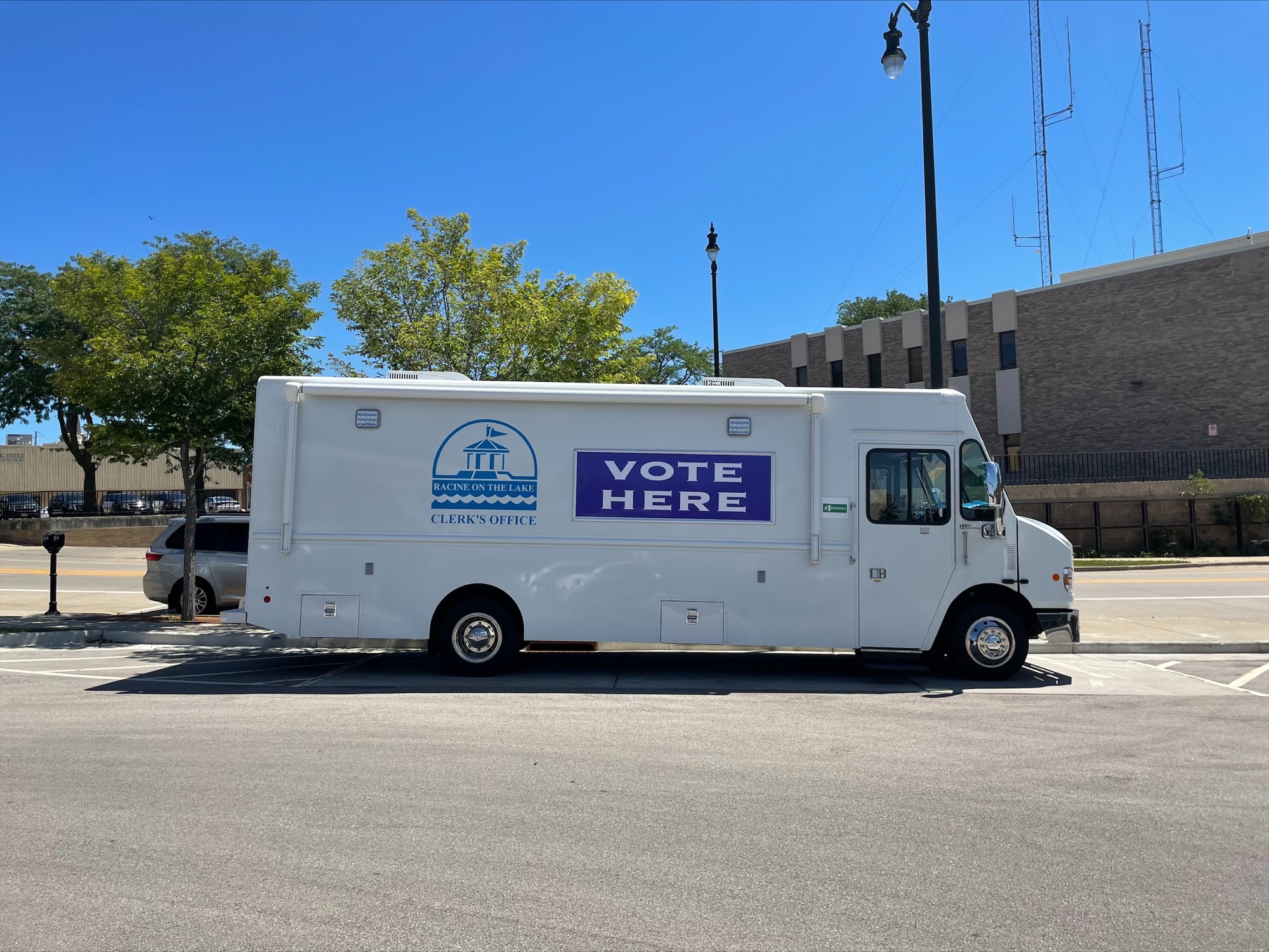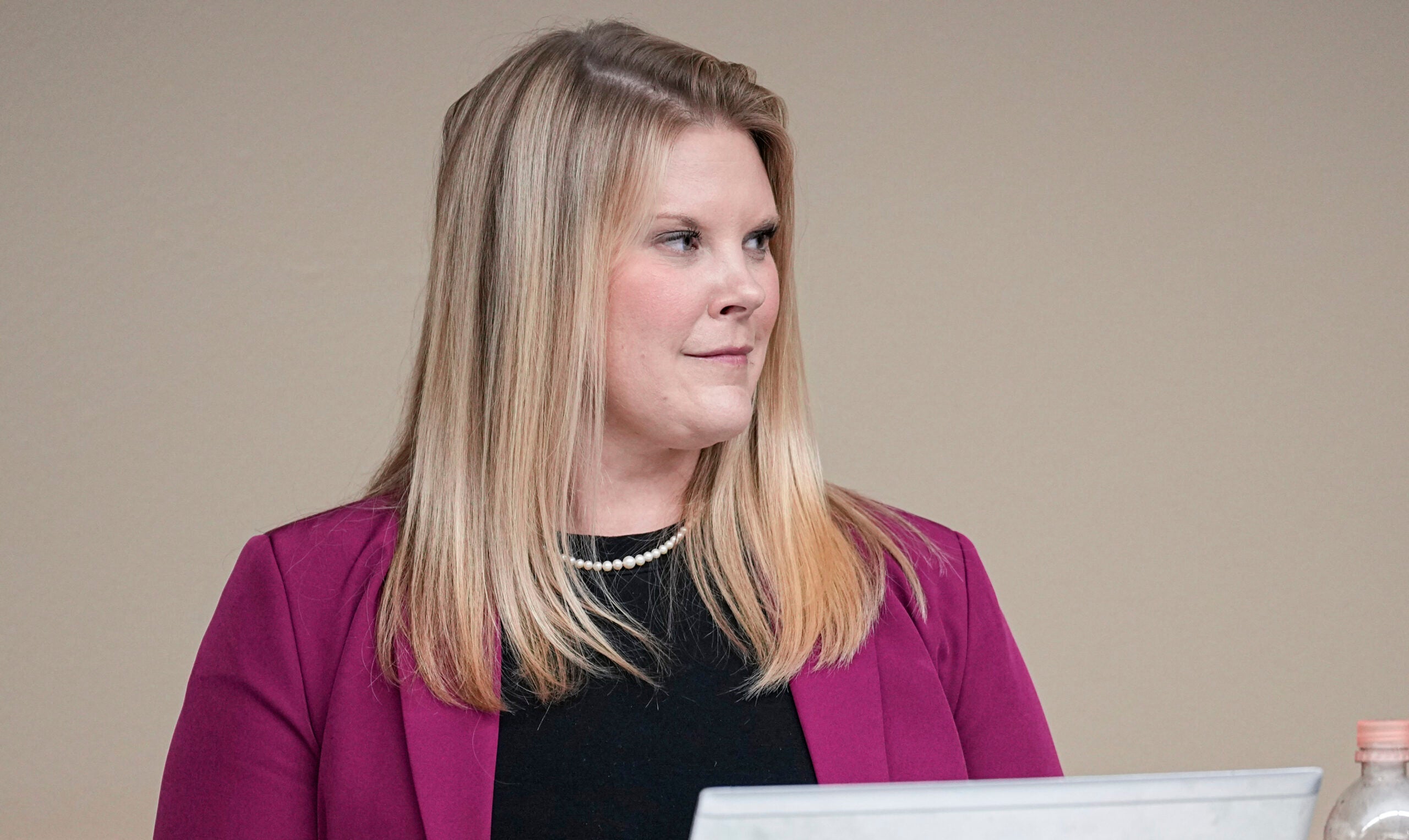Jury trials in Wisconsin will be suspended until late May under an order handed down Sunday night by a divided state Supreme Court to try to slow the spread of COVID-19.
While the move had support across the court’s ideological spectrum, not all justices supported it. Conservative Justice Rebecca Bradley issued a blistering dissent, saying the court’s action “nullifies our Constitution.”
The order took effect immediately and will last through May 22, meaning all civil and criminal trials scheduled to begin before then must be rescheduled. State courts will remain open for other business, with some exceptions.
Stay informed on the latest news
Sign up for WPR’s email newsletter.
In a written statement announcing the move, Chief Justice Patience Roggensack, who is part of the court’s conservative majority, said that the step was designed to protect the public, attorneys, court staff and judges from the health risks associated with the new coronavirus.
“The Supreme Court continues to monitor developments related to the COVID-19 public health emergency, and additional steps will be taken as necessary,” Roggensack said. “We are working actively with our judges, the legal community, as well as other branches of government and public health officials at the state and local level to meet this unprecedented challenge.”
But Bradley’s dissent could hardly have been more disdainful of the majority’s action.
Bradley wrote that the court’s majority had violated the U.S. Constitution’s Sixth Amendment, which guarantees the right to a speedy trial. In the process, she said, the court had assumed powers for itself that were never given.
“If the people’s constitutional rights may be suspended by the judicial branch in the name of a public health emergency, our freedom is in peril; our republic is lost,” Bradley wrote. “More than one million Americans have died defending our liberty from external threats. The liberty for which so many have laid down their lives should not be cast aside even in ‘troublous times.’ If the government will not protect constitutional rights designed to preserve our freedom, it is up to the people to reclaim them.”
Bradley wrote that if the Supreme Court could temporarily suspend the right to a jury trial, there was nothing keeping justices from suspending other constitutional rights, like the freedom of speech and the right to bear arms.
Bradley was joined in her dissent by conservative Justice Daniel Kelly, who is seeking election to a 10-year term on the court on April 7.
In a separate order Sunday, the court ordered a temporary suspension of in-person proceedings statewide until at least April 30. That means judges, commissioners and circuit court clerks will be required to use e-mail, teleconferencing, and video conferencing instead of in-person courtroom appearances.
In a third order, the Supreme Court postponed oral arguments that were scheduled for March 30 and April 1.
Wisconsin Public Radio, © Copyright 2025, Board of Regents of the University of Wisconsin System and Wisconsin Educational Communications Board.
